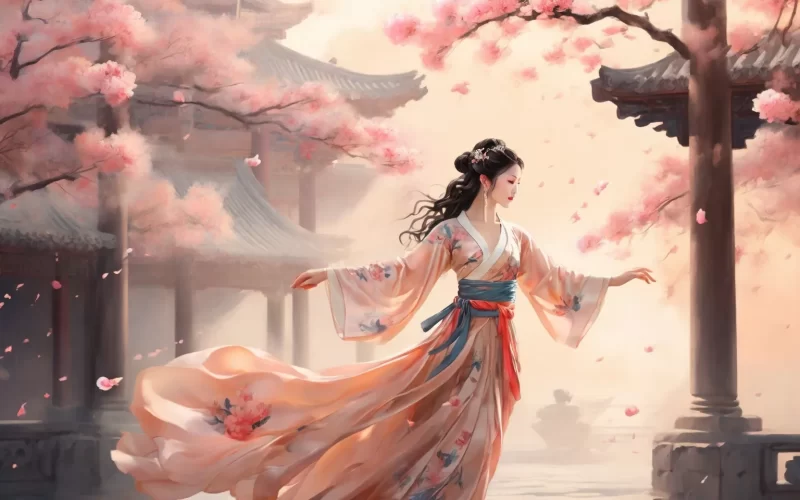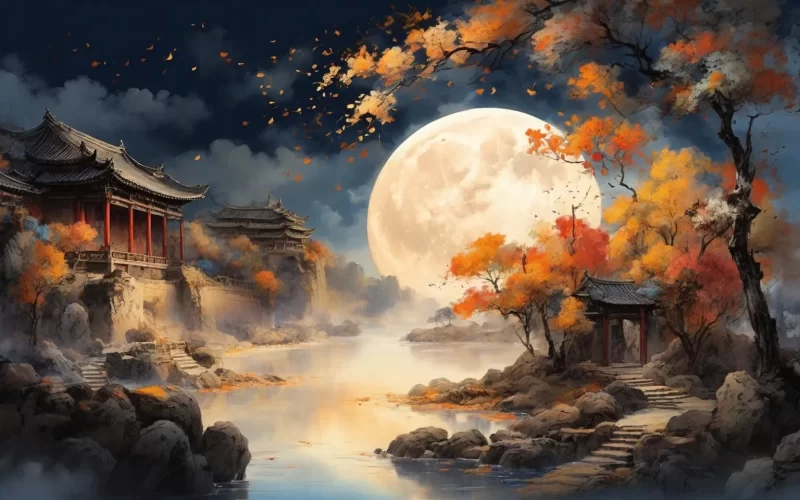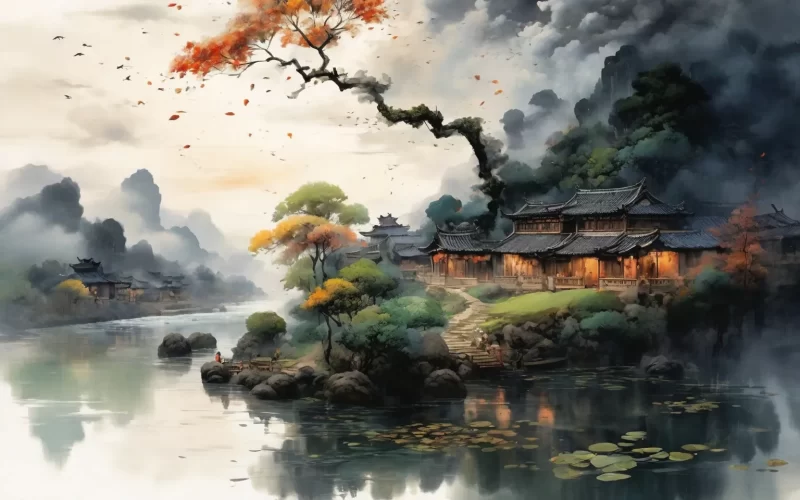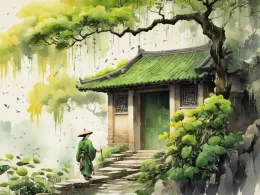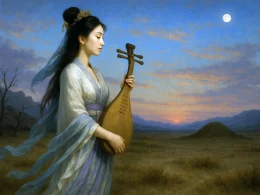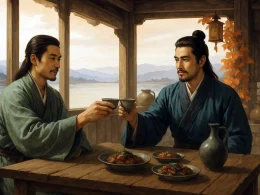Last night, while a gust blew peach-petals open
And the moon shone high on the Palace Beyond Time,
The Emperor gave Pingyang, for her dancing,
Brocades against the cold spring-wind.
Original Poem
「春宫怨」
王昌龄
昨夜风开露井桃,未央前殿月轮高。
平阳歌舞新承宠,帘外春寒赐锦袍。
Interpretation
Composed during Emperor Xuanzong's reign, this poem employs the "palace plaint" genre to critique contemporary politics through historical allusion. While ostensibly depicting a Han dynasty concubine's loss of favor, it subtly satirizes Xuanzong's obsessive favoritism of Yang Guifei and neglect of state affairs. Using the典故 of Empress Wei Zifu, the poet conveys profound melancholy through restrained imagery and elegant symbolism.
First Couplet: "昨夜风开露井桃,未央前殿月轮高。"
Zuó yè fēng kāi lù jǐng táo, wèi yāng qián diàn yuè lún gāo.
"Last night's wind bloomed dew-well peaches red; / Over Weiyang's front hall the moon hung high."
This scenic opening establishes melancholy contrast - the blooming peaches (symbolizing new favorites) and lofty moon (over the now-inaccessible main hall) create a coldly beautiful backdrop for the abandoned consort's loneliness.
Second Couplet: "平阳歌舞新承宠,帘外春寒赐锦袍。"
Píng yáng gē wǔ xīn chéng chǒng, lián wài chūn hán cì jǐn páo.
"Pingyang's songstress newly enjoys grace; / Through spring chill, brocade robes reach her place."
The new favorite's identity (Wei Zifu began as a singer) and excessive royal attention (robes bestowed despite mild chill) become ironic symbols of neglect elsewhere, revealing the abandoned woman's silent resentment.
Holistic Appreciation
Though a palace plaint, the poem never mentions "resentment" directly. Its genius lies in using historical analogy for contemporary critique. Scenes of spring blossoms and bright moons accentuate abandonment, while "brocade robes" magnify the unfavored's desolation. Deceptively simple language carries layered meanings, with satire woven so subtly it lingers long after reading.
Artistic Merits
- Historical allegory: Han dynasty references veil criticism of Tang court decadence
- Scene-emotion fusion: Peach blossoms, moon, and robes convey complex feelings
- Implied bitterness: "Plaint" manifests through absence rather than direct complaint
- Subtle satire: Decadence critique emerges through seemingly neutral details
Insights
The poem reveals how power dynamics create unseen victims, using delicate imagery to expose harsh realities. It reminds us that national decline often begins with a ruler's misplaced priorities, and that art's most potent social commentary often speaks softly - letting beauty sharpen truth's edge rather than bludgeoning with didacticism.
Poem translator
Kiang Kanghu
About the poet
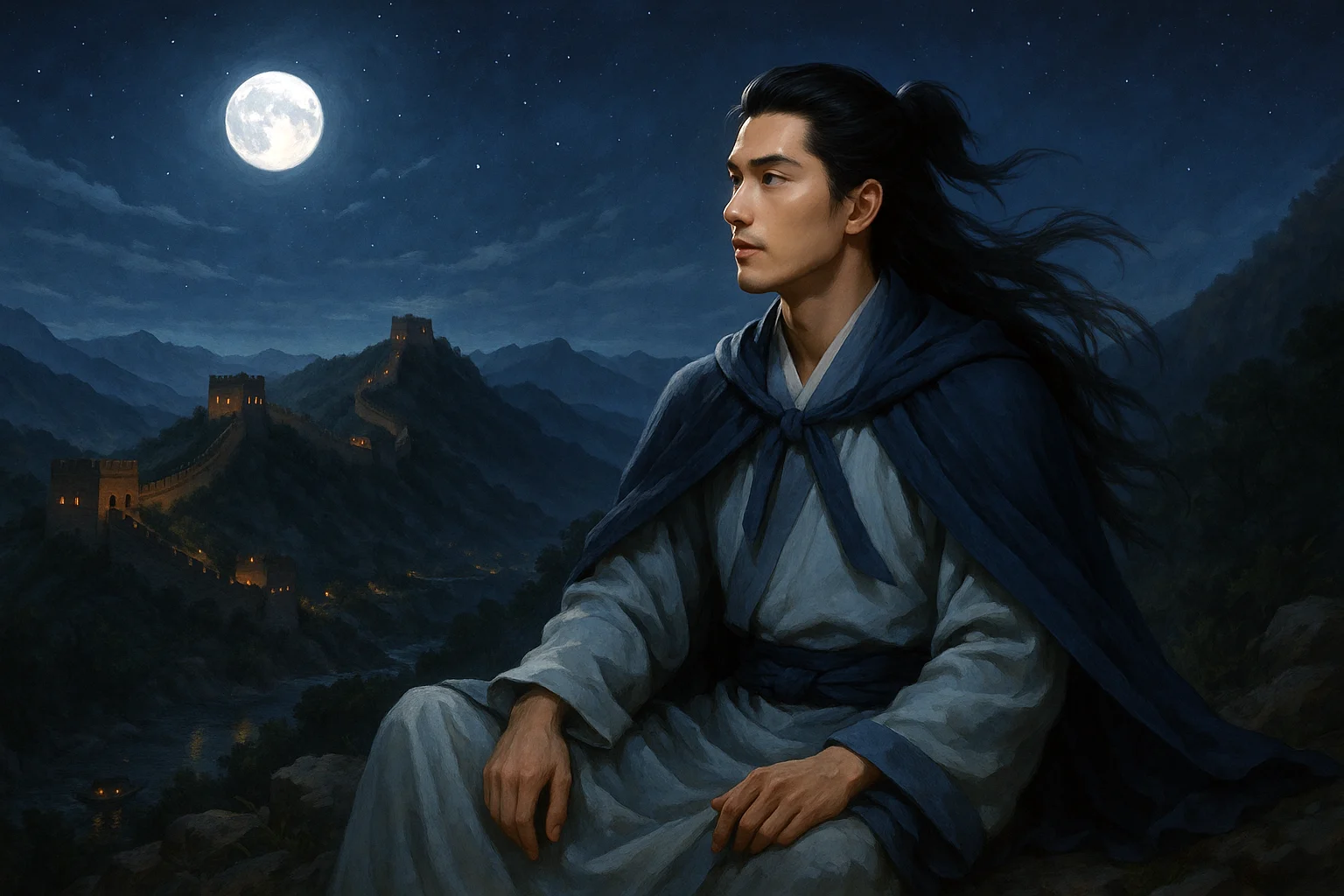
Wang Changling (王昌龄), circa A.D. 690 - 756, was a native of Xi'an, Shaanxi Province. Wang Changling's poems were mostly about the Border Places, love affairs and farewells, and he was well known during his lifetime. His seven poems are equal to those of Li Bai, and he is known as the “Master of seven lines”.






